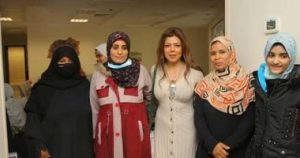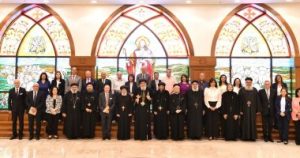The King Abdulaziz City for Science and Technology (KACST) implemented a training program for 27 trainees from various engineering and scientific disciplines belonging to 11 Saudi universities. The program aimed to develop their skills in deep technologies such as artificial intelligence, robotics, virtual and augmented reality, the Internet of Things, and 3D printing. During the 8-week program, trainees participated in qualitative projects reflecting future trends under the supervision of a group of researchers and specialists at the national laboratory. Key projects included virtual reality bicycle riding, remote control of robotic arms via simulation, developing a preliminary navigation tracking system for small autonomous vehicles, designing an automated sign language translation system, and developing intelligent systems to support people with special needs using generative AI.
This initiative is part of KACST’s commitment to supporting young national talents and preparing them to engage in advanced research environments, bridging the gap between educational outcomes and the labor market, and enhancing their capabilities in fields that form the pillars of the digital economy, aligned with Saudi Vision 2030 and national aspirations for research, development, and innovation to build a knowledge-based economy founded on innovation.













Recommended for you
Talib Al-Rifai Chronicles Kuwaiti Art Heritage in "Doukhi.. Tasaseem Al-Saba"
Exhibition City Completes About 80% of Preparations for the Damascus International Fair Launch
Unified Admission Applications Start Tuesday with 640 Students to be Accepted in Medicine
Egypt Post: We Have Over 10 Million Customers in Savings Accounts and Offer Daily, Monthly, and Annual Returns
His Highness Sheikh Isa bin Salman bin Hamad Al Khalifa Receives the United States Ambassador to the Kingdom of Bahrain
Al-Jaghbeer: The Industrial Sector Leads Economic Growth